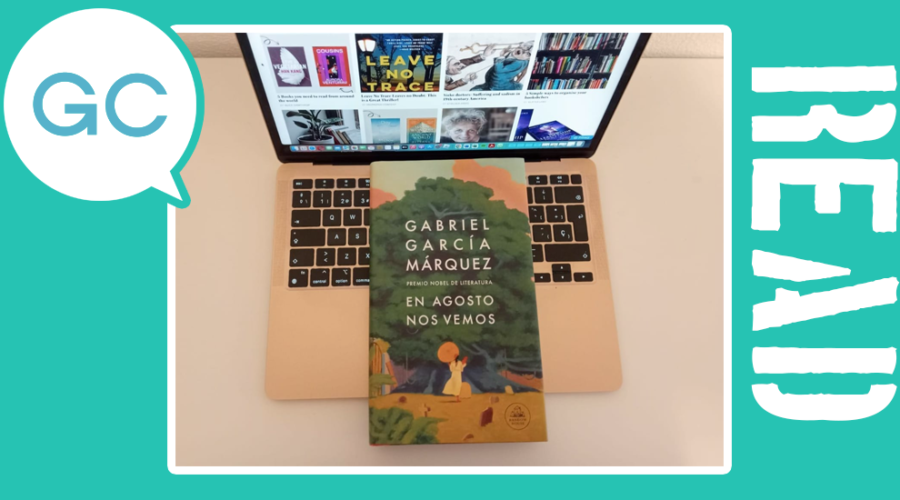Until August is an unexpected gift for readers, even more so for those of us who have wandered back and forth through Gabriel García Márquez‘s exquisite work.
Nevertheless, surprises often elicit mixed reactions, ranging from pleasure at receiving a gift to refusal to take it.
In Until August, the Nobel Prize-winning author is present in the signature prose and style. He is unmistakably Gabo, as he was also known. He is there in the details and obsessions that frame all his work, adding some different nuances about the position of women and the exploration of femininity in this new publication: while Úrsula Iguarán is the emotional pillar of the Buendía family through the passage of time in One Hundred Years of Solitude, Ana Magdalena Bach finally takes centre stage in the narrative, marking her own path of freedom in Until August.
Initially García Márquez thought of the novel as a series of stories connected by the idea of love at a mature age, later the vanishing of his memory didn’t allow him to finish connecting the pieces to complete the work featuring Ana Magdalena Bach — a woman who transforms into a different person one day a year while visiting her mother’s grave on a Caribbean island, something unthinkable for her at home where a stable marriage of 27 years and a couple of children, on the path to their own independence, await her.
The posthumous novel, published on the 97th anniversary of the author’s birth, 10 years after his death and 20 years since the publication of his last novel, is a short, well-narrated and intimate story about the rediscovery of sexuality in a woman approaching 50. In every chapter there is a journey and, in every visit, a new adventure, and anticipation builds as the long-awaited day, August 16, approaches.
Not all readers agree with the manuscript even being published, as the author shelved it as he felt it didn’t work. It is certainly not his greatest masterpiece, it is not as polished as his other works, but it delivers a fine result. Not every book can be a masterpiece, the writer’s life is not linear. Obviously there is growth, but each story also has a life of its own that leads it down a good path or towards genius.
The major critics highlight the non-fulfilment of the author’s wishes. Was this an unnecessary decision for García Márquez’s legacy?
Each reader will judge that for themselves; however, the decision was not made for the reasons many may think. The author’s sons and heirs, Rodrigo and Gonzalo García Barcha, weighed up the idea and decided to give the novel to readers, despite the clear warnings left by their father. A rereading years after the writer’s death made them take the step; they think that perhaps the memory decline, which entailed a lot of frustration for the author, prevented him from judging the text with clarity.
The Colombian author worked on the book for years, discussed the manuscript with his agent Carmen Balcells and, in 1999, even read excerpts at a public event at the Casa América in Madrid, accompanied by fellow Nobel laureate José Saramago. Fragments were later published in the Spanish newspaper El País and The New Yorker.
The published novel is not unfinished, it is the fifth self-revision made by the author; he would probably have given it a couple of more rounds if his mind had not begun to fade. Until August is therefore the fruit of the last effort to create, as his children describe it. His editor, Cristóbal Pera, only took the last version, proofread, fact-checked and analysed the writer’s marginal annotations — as he puts it, he only did a restorer’s job on the canvas of a great master.
They ignored his wishes, that is an unquestionable truth, which makes us wonder about the requests of our dead — who are we to dishonour them? However, his children, as well as his wife and publishers, were the people who really knew him, intimately, at work and in every detail of his habits.
Why didn’t he destroy the manuscript himself when he had the chance? The author was known to destroy and erase all traces of his unfinished writings, old drafts and even letters to his wife.
The back and forth in revisions and multiple versions meant that, when he let it rest, he could no longer return to the novel with a sharp mind as he would have liked. For him, there was nothing without his memory, which he considered his raw material: “the process was a race between his artistic perfectionism and his vanishing mental faculties,” say his children in the foreword.
These circumstances in which the novel was written has merits, so it deserves a respectful reading.
To have a character such as Ana Magdalena Bach come out of the mind of one of the great representatives of Latin American literature is delightful, as were Aureliano, José Arcadio, Úrsula, Cayetano and Fermina in his stories. The flourishes of his ink with its Caribbean colour are unmistakable, and I’ll treasure this gift in Spanish.
Image: Edgary Rodriguez

